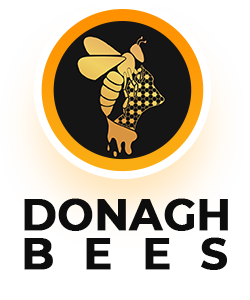Flowering plants make pollen as their main way to reproduce. When bees are looking for nectar to make honey, they collect pollen and store it as food for the bee colony.
Bee pollen has been used for centuries for nutritional and medicinal purposes, and modern science confirms that the sweet-tasting granules contain many health-boosting nutrients like:
-
Proteins
-
Amino acids
-
Antioxidants
-
Fatty acids
-
Vitamins like A, E, D, C, and several B vitamins
-
Minerals like calcium, phosphorus, magnesium, potassium, and iron
These nutrients are in other foods that make up a balanced diet, but bee pollen is a great way to make sure you’re consuming enough to support healthy bodily functions.
However, there may be more to this nutrient profile, and scientists continue to study bee pollen’s potential health benefits. It’s already officially recognized as a medicine in Germany, and doctors practicing clinical medicine in China often recommend bee pollen to help treat some conditions.
Health Benefits
Bee pollen’s more than 200 different compounds support a wide range of functions in your body. Among these nutrients is a high antioxidant content, including flavonoids, carotenoids, glutathione, and quercetin—all known to help protect your body from cell damage linked with chronic diseases.
In addition, research shows bee pollen can improve:
Heart Health
Bee pollen lowers cholesterol levels, a leading risk factor for heart disease. Studies show this effect occurs even in patients who do not respond to common cholesterol-lowering drugs and in those with active heart disease.
Its unsaturated fatty acid content also helps prevent harmful blood clots, improving blood flow around your body and reducing your heart disease and stroke risk.
Inflammation
Bee pollen has anti-inflammatory effects, and scientists have found that it blocks the activity of enzymes that cause both acute and chronic inflammation. In animals, studies show bee pollen eliminates swelling by up to 75% and point to its potential to treat or prevent chronic inflammatory diseases, cognitive decline, and liver diseases.
Immune System
The vitamins, minerals, and antioxidants in bee pollen are all vital to a well-functioning immune system. But in studies, bee pollen has shown it can provide extra immunity support.
For example, research shows that bee pollen can block the release of histamine, the main compound responsible for allergic reactions. Scientists have also found bee pollen to:
-
Increase the immune system response against infection and disease
-
Show antibiotic activity against pathogens like staph and fungal infection-causing bacteria
-
Improve the rate of wound healing
-
Inhibit tumor growth in some cancers
Depression Symptoms
Research shows bee pollen can boost blood circulation to the brain. This effect strengthens nervous system functions that are weakened when you’re stressed, overworked, and depressed. This effect can help relieve symptoms of mental health conditions like decreased energy, physical weakness, and brain fog.
When bee pollen is taken alongside antidepressants, scientists find patients can lower their doses and improve their condition in less time. It’s also used to help recovering alcoholics alleviate symptoms and improve nutrient deficiencies caused by the disease.
Health Risks
Bee pollen is safe for most people to take as a source of many essential nutrients, but it may cause problems for people with certain conditions. Talk to your doctor before adding it to your diet to ensure it’s safe for you.
Things to consider before taking bee pollen include:
Allergies
People with allergies to pollen or bee stings should avoid bee pollen as it may cause itching, rash, and wheezing. In rare cases, a severe allergic reaction called anaphylaxis can occur. Symptoms of anaphylaxis include loss of breath, feeling light-headed, fast heartbeat, clammy skin, losing consciousness, wheezing, and confusion.
Asthma
Because of the potential respiratory reactions like wheezing, people with asthma should consult with their doctor before taking bee pollen.
Low Blood Sugar
Products like honey and bee pollen may affect blood sugar levels, so people taking blood sugar medication or treating conditions like diabetes should talk to their doctor to ensure there’s no potential interaction.
Blood Thinners
Some research indicates a possible interaction between bee pollen and the effects of anticoagulant medications, or blood thinners, like warfarin (Coumadin).
Pregnancy or Breastfeeding
Taking bee pollen is possibly unsafe during pregnancy. There isn’t enough research on its effects during breast-feeding, so doctors recommend both pregnant and nursing women avoid taking it.
Amounts and Dosage
Bee pollen is usually consumed 3 times a day before a meal. In a therapeutic study, adults were given 20-40 grams of bee pollen per day.
However, researchers believe that effective amounts of bee pollen vary based on age, health, and other conditions. But there is not adequate research that defines the best dose.
Because products can have different levels of nutrients depending on the bee pollen’s source, follow dosage instructions provided by your doctor and report any negative side effects.

